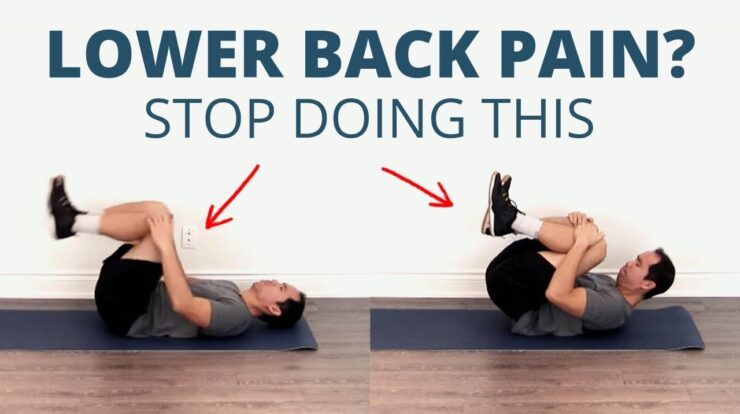
Suffering from gum disease? Don’t despair! In this comprehensive guide, we’ll delve into how to cure gum disease without a dentist, empowering you with natural remedies, lifestyle modifications, and effective home treatments.
Natural Remedies
Gum disease is a common problem that can be caused by poor oral hygiene, smoking, or certain medical conditions. While it’s always best to see a dentist for treatment, there are some natural remedies that can help reduce inflammation and pain associated with gum disease.
Here’s a table of some popular natural remedies for gum disease:
| Remedy | Ingredients | Method | Expected Benefits |
|---|---|---|---|
| Oil pulling | Coconut oil or sesame oil | Swish 1-2 tablespoons of oil in your mouth for 15-20 minutes, then spit it out. | Reduces inflammation, kills bacteria, and whitens teeth |
| Saltwater rinses | 1/2 teaspoon salt in 1 cup warm water | Rinse your mouth with the saltwater solution for 30 seconds, then spit it out. | Reduces inflammation, kills bacteria, and helps heal sores |
| Turmeric paste | 1 teaspoon turmeric powder mixed with a little water | Apply the paste to your gums and leave it on for 5-10 minutes, then rinse your mouth with water. | Reduces inflammation, kills bacteria, and promotes healing |
| Tea tree oil | 2-3 drops of tea tree oil in 1 cup warm water | Rinse your mouth with the tea tree oil solution for 30 seconds, then spit it out. | Kills bacteria, reduces inflammation, and promotes healing |
Lifestyle Modifications

Gum disease is a common problem that can lead to serious health issues if left untreated. While it’s important to see a dentist regularly for professional cleanings and checkups, there are also several lifestyle changes you can make to help prevent and treat gum disease.
Here are some tips:
Oral Hygiene
- Brush your teeth twice a day with a soft-bristled toothbrush and fluoride toothpaste.
- Floss once a day to remove plaque and bacteria from between your teeth.
- Use an antibacterial mouthwash to kill bacteria that cause gum disease.
- Get regular dental checkups and cleanings to remove tartar and plaque buildup.
Stress Reduction
Stress can weaken your immune system, making you more susceptible to gum disease. Find healthy ways to manage stress, such as exercise, yoga, or meditation.
Quitting Smoking
Smoking damages the gums and makes them more susceptible to infection. Quitting smoking is one of the best things you can do for your oral health.
Home Treatments: How To Cure Gum Disease Without A Dentist

Maintaining good oral hygiene is essential for preventing and treating gum disease. Home treatments can help reduce inflammation, kill bacteria, and promote healing. Here’s a step-by-step guide to performing a home deep cleaning of the teeth and gums:
Flossing
- Use dental floss to gently remove plaque and bacteria from between the teeth and below the gum line.
- Floss at least once a day, preferably before brushing.
- Curve the floss around the base of each tooth and move it up and down to scrape away plaque.
Mouthwash
- Use an antibacterial mouthwash to kill bacteria and reduce inflammation.
- Swish the mouthwash around for 30 seconds, then spit it out.
- Use mouthwash twice a day, after brushing and flossing.
Waterpik
- Use a waterpik to remove plaque and bacteria from hard-to-reach areas.
- Direct the stream of water at the gum line and between the teeth.
- Use the waterpik once a day, after brushing and flossing.
Over-the-Counter Remedies

Over-the-counter (OTC) treatments can help reduce gum inflammation and pain, but they cannot cure gum disease. These treatments are available in various forms, including mouthwashes, gels, and lozenges.
When choosing an OTC treatment, it is essential to consider the ingredients, effectiveness, and potential side effects. The following table compares some common OTC treatments for gum disease:
Active Ingredients
| Treatment | Active Ingredients | Effectiveness | Potential Side Effects |
|---|---|---|---|
| Chlorhexidine mouthwash | Chlorhexidine | Effective in reducing plaque and bacteria | Can cause tooth discoloration and taste disturbances |
| Cetylpyridinium chloride (CPC) mouthwash | Cetylpyridinium chloride | Effective in reducing plaque and bacteria | Can cause mouth irritation |
| Hydrogen peroxide mouthwash | Hydrogen peroxide | Effective in reducing bacteria | Can cause mouth irritation |
| Sodium fluoride gel | Sodium fluoride | Helps strengthen teeth and reduce sensitivity | Can cause tooth discoloration |
| Triamcinolone acetonide paste | Triamcinolone acetonide | Reduces inflammation and pain | Can cause mouth irritation |
Alternative Therapies
Alternative therapies offer complementary approaches to conventional treatments for gum disease. These methods aim to improve oral health, reduce inflammation, and support the body’s natural healing abilities.
Acupuncture
Acupuncture involves inserting thin needles into specific points on the body to stimulate the nervous system and promote healing. It is believed to reduce pain, inflammation, and improve blood circulation to the gums.
Herbal Remedies, How to cure gum disease without a dentist
Various herbs have antibacterial and anti-inflammatory properties that can aid in treating gum disease. Some commonly used herbs include tea tree oil, green tea extract, and echinacea.
Ozone Therapy
Ozone therapy involves administering ozone gas to the affected area. Ozone has antimicrobial and anti-inflammatory effects, which can help reduce bacteria and promote healing in the gums.
Closing Summary
By embracing the strategies Artikeld in this guide, you can regain a healthy smile and prevent gum disease from recurring. Remember, consistency is key, and don’t hesitate to consult a healthcare professional if needed.
Helpful Answers
Can I cure gum disease permanently without a dentist?
While some home remedies and lifestyle changes can improve gum health, professional dental care is often necessary for long-term treatment and prevention.
Is it safe to use essential oils for gum disease?
Some essential oils, such as tea tree oil, have antibacterial properties that may benefit gum health. However, always dilute them with a carrier oil and consult a healthcare professional before use.
How often should I floss and brush my teeth?
For optimal oral hygiene, floss at least once a day and brush your teeth twice a day.





